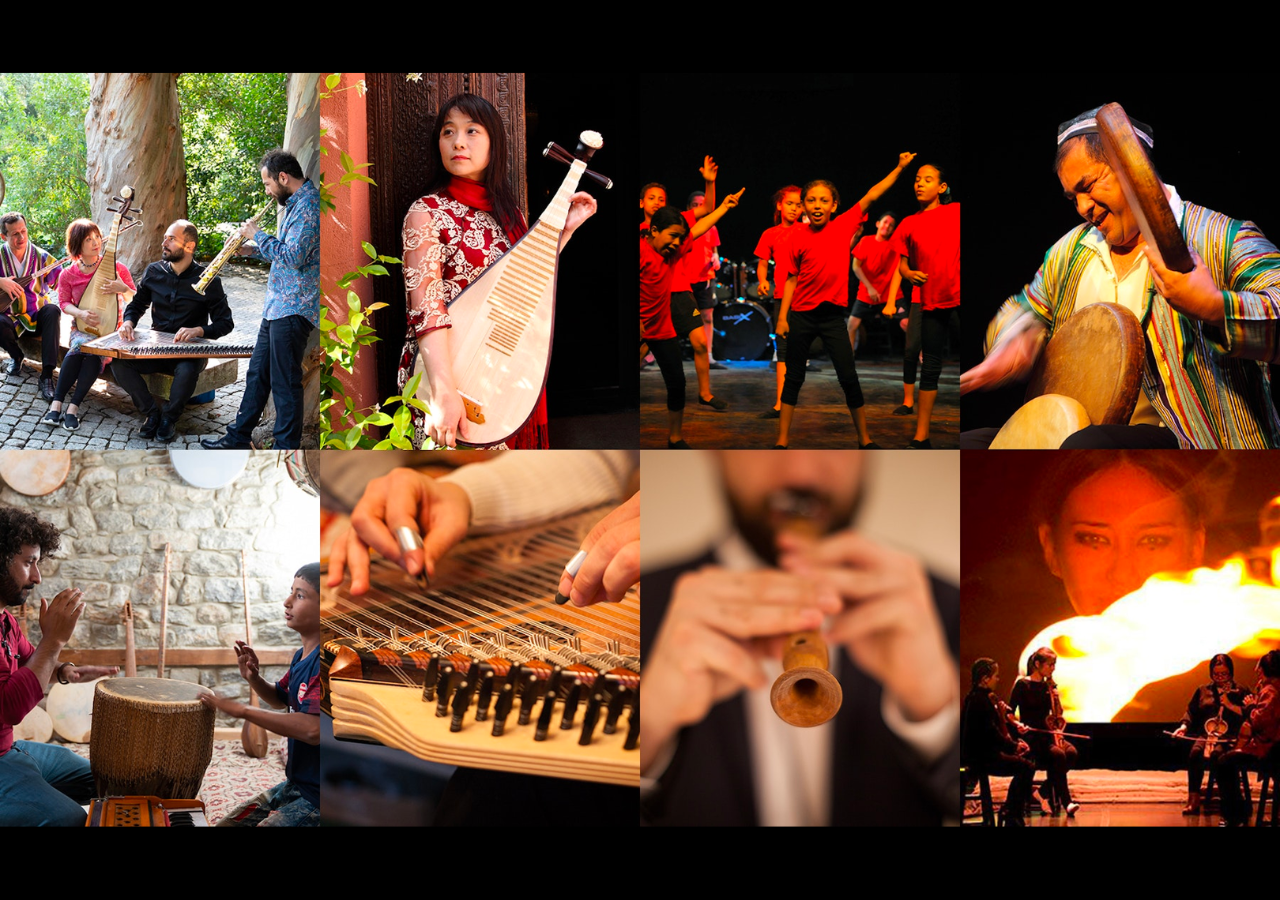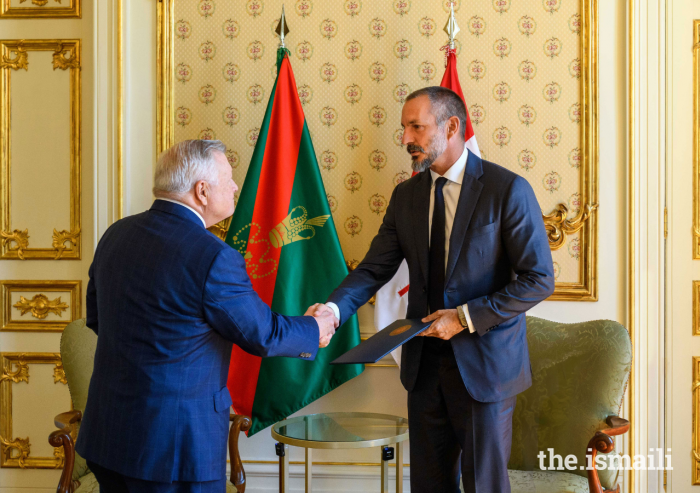How were these musicians selected to receive one of the prestigious Awards, which were established by Mawlana Hazar Imam in 2018 to recognise exceptional musical creativity, promise, and enterprise in societies across the world in which Muslims have a significant presence? And why offer support for music and musicians at a time when so many urgent needs compete for attention in every sector of the AKDN’s work? To answer these questions, we need to look back at the original inspiration for the Music Awards and its predecessor, the Aga Khan Music Programme, and trace their development and social impact.
Mawlana Hazar Imam has spoken about the critical role of his visit to Tajikistan, in 1995, when he was deeply impressed by the rich and resilient musical life of the communities he visited and began to think, as he put it, “about the ways in which music can be a strong cultural anchor, deepening a sense of community, identity, and heritage, while simultaneously reaching out in powerful ways to people of different backgrounds.” But how to turn a lucid observation about the power of music into an ongoing cultural development programme that applies the rigorous metrics and analytical schemes of development professionals to measuring the impact of music? Can music’s impact ever be measured? To explore this question, Mawlana Hazar Imam established the pioneering Aga Khan Music Initiative in Central Asia, as the Music Programme was first known.
The year was 2000, nine years after the breakup of the Soviet Union. The social and economic aftershocks of the breakup reverberated strongly in Central Asia, and musicians were particularly hard hit. Under Soviet rule, musicians could count on guaranteed employment as performers, teachers, and composers, but without the sprawling Soviet infrastructure, musicians were left to their own devices. As the newly independent nations of Central Asia took stock of their cultural assets, it became clear that many traditional practices had been lost, including, notably, musical practices. Revitalising these traditions, training young musicians to perform them, and stimulating demand for them among listeners became the work of the Aga Khan Music Initiative. Fairouz Nishanova, the Music Initiative’s long-time director, recounted the challenges of getting the programme off the ground. “In Kyrgyzstan and Tajikistan, we scoured the countryside for musical tradition-bearers,” she recalled. “Some of the best had given up playing music, and we had to persuade them to return to it. We offered them positions teaching music in a network of schools we established, but they were skeptical about whether there would be any interest.” Parents were also skeptical about providing their children with lessons on traditional folk instruments. ‘Why not learn the accordion?’ some parents advised their children.
Persistence paid off, however, and the Music Initiative began to see a measurable impact of its work. Enrollments in music classes burgeoned. Workshops to build high-quality instruments cranked up production. Students from the music schools competed successfully in regional and international competitions. And an increasing number of folk instrument cases could be spotted on the streets of Bishkek, Almaty, and Dushanbe. Concert touring networks presented musicians from Central Asia around the world. The prestige of traditional music grew. Government officials took notice and provided resources to help the Music Initiative scale up its programmes.
Yet, despite the achievements of the Music Initiative and its successor, the Aga Khan Music Programme, their impact was limited by their remit to work on the ground in six specific countries and offer long-term support to a small network of schools, with the result that dozens of other countries with strong Muslim musical heritage were left untouched by their activities. Broadening the impact of the Music Programme was a principal rationale for establishing the Aga Khan Music Awards. By casting a global net for musical talent, the Music Awards exponentially expanded the networking possibilities of the artistic community the Music Programme had been growing for more than two decades.
This work is ongoing and evolving. Today, many of the Awards laureates are using their musical gifts to teach and mentor young people, raise awareness about urgent social and environmental issues, and rally listeners to causes of justice and freedom. While the broader social impact of the Music Awards will only become known with time, all indications are that supporting the creative work of exceptionally gifted musicians is a successful strategy for advancing the overall mission of the AKDN.








